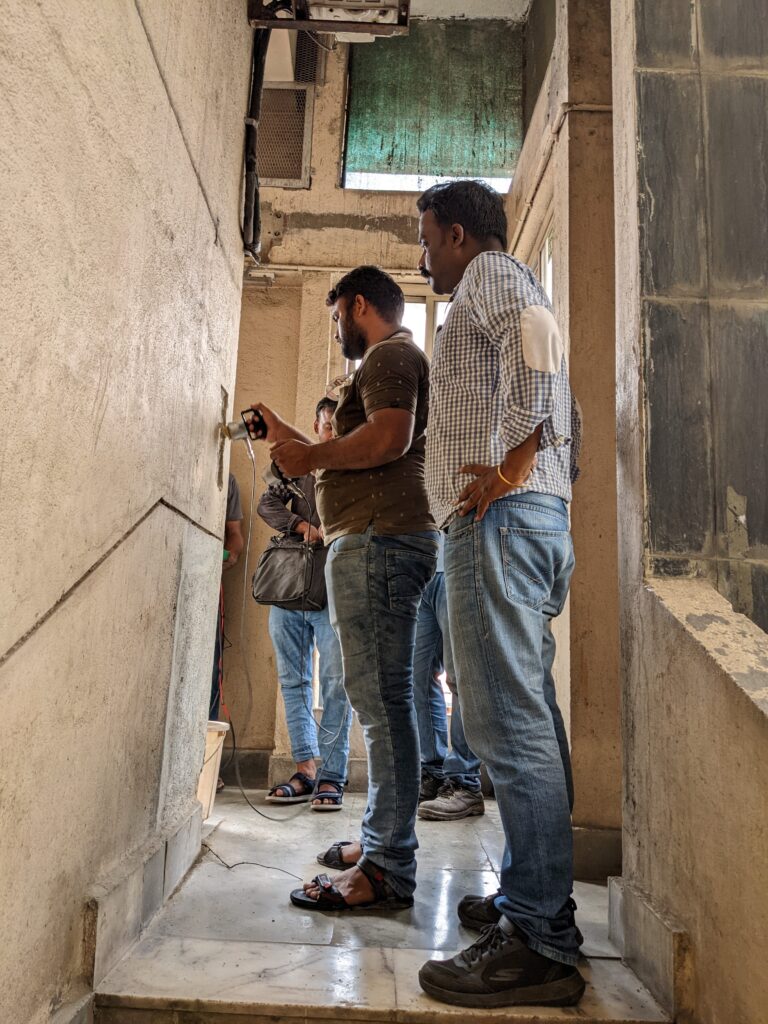The Major Problems of Not Conducting a Structural Audit
A structural audit is a crucial process that ensures the safety, durability, and stability of buildings. Unfortunately, many property owners and managers neglect this essential inspection, leading to severe consequences. Failing to conduct a structural audit can result in structural deterioration, safety hazards, financial losses, and even legal troubles. In this article, we will explore the major problems associated with not performing a structural audit and why every property owner should prioritize it.

1. Risk of Structural Failure
One of the most severe consequences of avoiding a structural audit is the increased risk of structural failure. Over time, buildings experience wear and tear due to environmental factors, load stress, and material degradation. If these issues are not detected in time, they can lead to cracks, corrosion, weakened foundations, and eventually, a collapse.
Example:
A residential building in Mumbai collapsed due to untreated cracks and water seepage, which could have been prevented with regular structural audits.
2. Increased Safety Hazards
Neglecting a structural audit can put lives at risk. Issues like loose balconies, weak columns, corroded steel reinforcements, and deteriorating walls pose severe dangers to residents and occupants. Falling debris, sudden collapses, or weakened floors can lead to fatalities or serious injuries.
Real-Life Case structural audit
Several incidents have occurred where poor building maintenance and a lack of structural assessment resulted in tragedies, particularly in older buildings.
3. Costly Repairs Due to Negligence
A minor issue left unchecked can turn into a massive financial burden. Structural audits help detect problems early, preventing costly repairs in the future.
For Example:
- A small foundation crack ignored today could lead to major foundation reinforcement expenses later.
- Water leakage from a minor roof crack can cause severe dampness, mold, and extensive roof repairs if left untreated.
Investing in regular structural audits saves money in the long run
4. Decreased Property Value
Buildings that lack proper maintenance and regular audits tend to lose their market value. Prospective buyers or tenants often inspect safety reports before making investment decisions. If a building shows signs of structural weaknesses, water damage, or poor maintenance, its resale value drops significantly.
A Market Perspective:
Properties with a proven track record of regular audits and maintenance attract more buyers and tenants, ensuring better market value.
5. Legal and Compliance Issues
Many municipalities and governments require buildings to undergo periodic structural audits to comply with safety regulations. Failure to conduct audits can result in legal penalties, fines, or even property demolition orders.
Legal Consequences Include:
- Government notices for building violations
- Court cases from affected tenants or residents
- Insurance claim rejections due to lack of safety compliance
6. Insurance Rejection and Liability Issues
Many insurance companies require proof of a structural audit before providing coverage. In case of an accident, a lack of audit records can result in the denial of insurance claims, leaving owners financially burdened.
What Happens If You Skip a Structural Audit
- No compensation in case of structural damage or collapse
- Increased insurance premiums due to lack of maintenance records
Legal liability in case of injuries caused by negligence
7. Accelerated Structural Deterioration
Buildings exposed to climatic changes, earthquakes, and environmental stress degrade faster if not maintained properly. Without periodic structural audits, early warning signs like corrosion, spalling, and cracks go unnoticed, accelerating deterioration.
Consequences:
- Increased repair costs due to late intervention
- Shortened building lifespan
Risk to nearby structures due to weakened stability
8. Water Leakage and Dampness Problems
Structural audits help detect water leakage, cracks, and drainage issues before they lead to major waterproofing failures. Ignoring these audits can result in damp walls, mold growth, and weakened foundations.
Signs of Neglected Water Damage:
- Peeling paint and wall discoloration
- Mold and fungus growth
- Weakening of internal structures
A proper structural and waterproofing audit ensures long-term protection from water-related damages.
9. Poor Indoor Air Quality and Health Hazards
Structural damages often lead to moisture buildup and mold growth, which negatively affect indoor air quality. Damp conditions encourage the growth of allergens and bacteria, causing respiratory issues and allergies.
Health Problems Due to Poor Maintenance:
- Asthma and respiratory infections
- Skin allergies due to mold exposure
- Increased sickness among occupants
A structural audit helps identify and fix ventilation and moisture issues, promoting a healthier living environment
10. Negative Impact on Business Operations
For commercial buildings, offices, and factories, ignoring structural audits can lead to business disruptions and financial losses. A structurally unsafe building may require urgent evacuations, shutdowns, or major repairs, leading to downtime and loss of revenue.
Example: A manufacturing plant with unchecked roof damage may face water leaks that destroy machinery and inventory, leading to huge financial losses
Conclusion
A structural audit is not an expense but an investment in safety, longevity, and financial security. Avoiding structural audits can lead to catastrophic failures, legal troubles, increased repair costs, and life-threatening hazards. By prioritizing regular structural inspections, property owners can prevent risks, comply with regulations, and ensure the long-term sustainability of their buildings.
Don’t wait for visible cracks or collapses—schedule a structural audit today!
“A structural audit is not an expense; it’s an investment in safety, durability, and peace of mind.” 🏢✅
Related Post
Corrosion of Steel Reinforcement: How Structural Audits Prevent Major Failures
Reinforced concrete is the backbone of modern construction. From residential buildings to commercial complexes, steel…
10 Common Structural Problems in Buildings — and How a Structural Audit Fixes Them
Buildings are long-term assets, but over time, natural aging, environmental exposure, poor construction practices, and…
How a Detailed Structural Audit Report Can Save Lakhs in Future Repairs
Aavishkaar Consultants – Trusted Experts in Structural Engineering Many buildings appear safe on the outside…
What Is a Structural Safety Audit
A structural safety audit is a systematic evaluation of a building’s condition.It focuses on load-bearing…
Difference Between Preliminary and Detailed Structural Audit
Aavishkaar Consultants – Trusted Experts in Structural Engineering Keeping your building safe, strong, and future-ready…
PMC for Buildings: The Smartest Way to Manage Repair & Redevelopment Projects
What Is a PMC for Buildings? Managing a building repair or redevelopment project is not…
